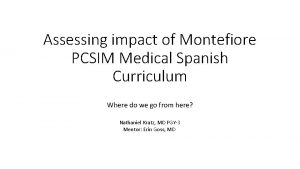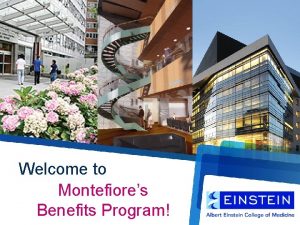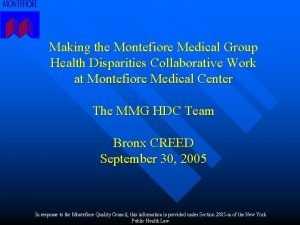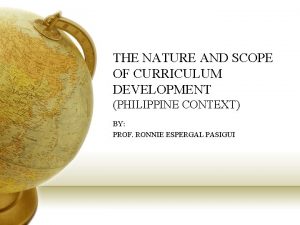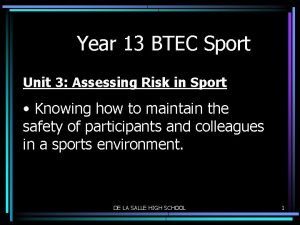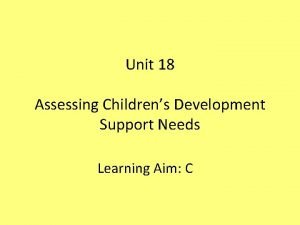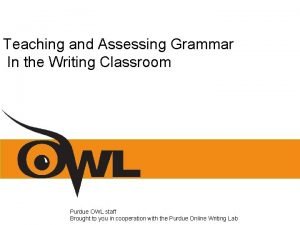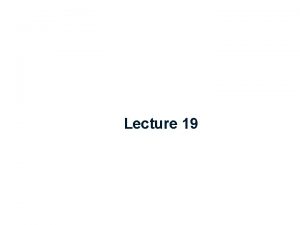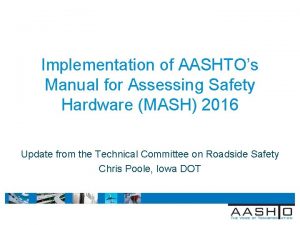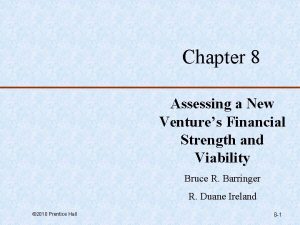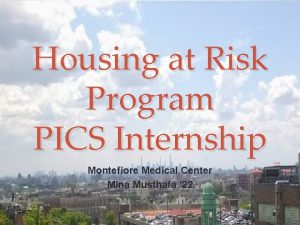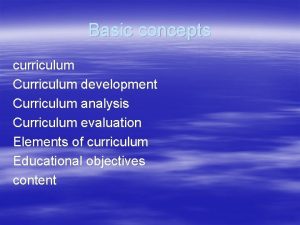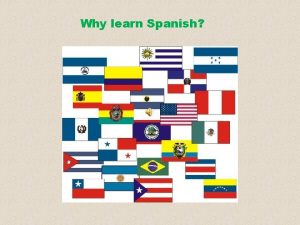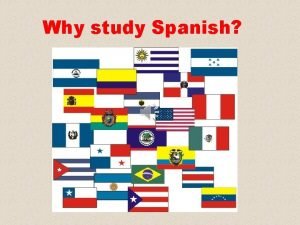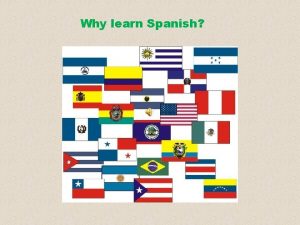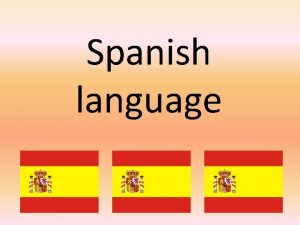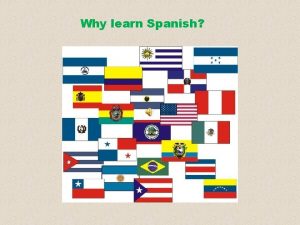Assessing impact of Montefiore PCSIM Medical Spanish Curriculum




![Initial ideas for modifications to curriculum • Added role-playing exercises [implemented] • Adapted clinical Initial ideas for modifications to curriculum • Added role-playing exercises [implemented] • Adapted clinical](https://slidetodoc.com/presentation_image/11307b672ca8e30b90584aae7c7ebc60/image-5.jpg)








- Slides: 13

Assessing impact of Montefiore PCSIM Medical Spanish Curriculum Where do we go from here? Nathaniel Kratz, MD PGY-3 Mentor: Erin Goss, MD

Why Medical Spanish? • Bronx: 1 • • 35% of the population is foreign-born 55% of the population speak a language other than English at home. 46% of the population is Spanish-speaking 350, 000 (23%) of residents have limited English proficiency (LEP) • Overwhelming literature demonstrates correlation between limited English proficiency and poorer health outcomes • Conversely, better outcomes for LEP patients who have access to Culturally and Linguistically Appropriate Services 2 • Most medical providers at Montefiore do not come from the communities we serve 1 American Community Survey, 2014. 2 Culturally and Linguistically Appropriate Services (CLAS). US Health and Human Services Department.

PCSM Medical Spanish Curriculum • Four-week Medical Spanish language course for all incoming PGY-1 residents as a part of the core Social Medicine curriculum. • Tailored to incoming residents according to their self-identified Spanish language fluency level • Taught in partnership with El Taller Latino Americano, a communitybased non-profit arts and education organization

Questions • What is the impact of the curriculum on individual proficiency, selfawareness of that proficiency, and use of interpreters? • What tools are residents given in order to assess their own proficiency, and how close to reality (i. e. objective measure) are those self-assessments? • What are the attitudes of residents toward Medical Spanish and the curriculum? • What are ways this curriculum be improved?
![Initial ideas for modifications to curriculum Added roleplaying exercises implemented Adapted clinical Initial ideas for modifications to curriculum • Added role-playing exercises [implemented] • Adapted clinical](https://slidetodoc.com/presentation_image/11307b672ca8e30b90584aae7c7ebc60/image-5.jpg)
Initial ideas for modifications to curriculum • Added role-playing exercises [implemented] • Adapted clinical scenarios from S. A. B. E. S. Medical Spanish curriculum (University of Denver medical school) [implemented] • Ethics of interpreter use [implemented] • OSCE [not yet implemented] • Interpreter certification [not yet implemented]

Investigation Pre- and Post-curriculum: • Survey • Attitudes and behaviors around interpreter use, value of Medical Spanish • Self-assessment of proficiency • Proficiency scale using linguistic levels established by the Interagency Language Roundtable (ILR) and Common European Framework of Reference (CEFR) • Computerized Oral Proficiency Instrument • • Validated objective assessment Uses same ILR/CEFR language scale as self-assessment Assess concordance with self-assessment Assess impact of curriculum on proficiency

Survey results: Background • 2018/19 class • 10 interns • 1 native Spanish speaker with training in Medical Spanish • 2 others with some level of Spanish spoken in the home (but not Medical) • Average academic/medical Spanish experience, 1. 7 years (range 0 -5 years)

Survey results: Subjective self-assessment Compared to pre-curriculum survey, post-curriculum survey showed: • Trend toward decreasing self-assessed linguistic proficiency level • Increased confidence in ability to identify situations where an interpreter should be used • Increase in self-reported use of interpreters

Objective test results: COPI • IT disaster!

Survey results: Attitudes • 100% would like an ongoing Medical Spanish curriculum throughout residency • 100% feel that Medical Spanish is an important part of the PCSIM curriculum • 100% plan to use Medical Spanish in their future careers • 77% feel that the curriculum needs improvement • 67% would like more clinical scenarios and role-playing

Qualitative: Self-assessment "The medical Spanish curriculum showed me that I was overestimating my own language proficiency before coming to residency. I realized that the gap in my knowledge was greater than I had previously thought. " "I don’t know if anyone is able to fully assess their own proficiency because it’s difficult to see your own blind spots. " "If you are not regularly speaking Spanish it can be difficult to know how proficient you are. " "I think that I definitely overestimated my ability to speak Spanish prior to arriving in residency. "

Qualitative: time "I would like the curriculum to be more frequent and continued throughout the three years in residency. " "I would recommend that it goes beyond PGY-1" "I think more time needed to be allotted for the curriculum. " ". . . we should do medical Spanish like the psychosocial curriculum in which we have sessions once a week with homework. " "I think the primary deficit in the current curriculum is that it is short on time. " "I don't think I progressed Significantly in my medical Spanish given limited time. "

Take-aways • Ability to communicate in Spanish is incredibly important for our patient population • There is a strong desire on part of residents to learn and use Medical Spanish now and in their future careers • Not enough time is dedicated to the curriculum • Curriculum is valuable for residents, but achieving a linguistically and culturally competent workforce will actually depend on recruitment • Spanish proficiency/fluency as a requisite?
 Montefiore pcsim
Montefiore pcsim Montefiore employee benefits
Montefiore employee benefits Montefiore cfcc
Montefiore cfcc Pcsium element
Pcsium element Loc model of curriculum implementation
Loc model of curriculum implementation Btec sport unit 3
Btec sport unit 3 Unit 18 assessing children's development support needs p1
Unit 18 assessing children's development support needs p1 Ways to address grammar in the writing classroom
Ways to address grammar in the writing classroom 4 stages of ppst
4 stages of ppst Task analysis in hrd
Task analysis in hrd Informal reading assessments
Informal reading assessments Manual for assessing safety hardware
Manual for assessing safety hardware Chapter 4 cultural dynamics in assessing global markets
Chapter 4 cultural dynamics in assessing global markets Assessing a new venture's financial strength and viability
Assessing a new venture's financial strength and viability
